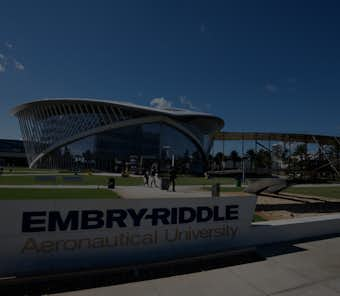
Study astrophysics abroad
Find programs that match your eligibility and aspirations then apply with reduced application fees, a free assessment and access to a dedicated advisor.
Find your perfect astrophysics programs abroad
Find astrophysics programs you love that match your needs & aspirations, where you stand a high chance of acceptance.
-

PhD programs in
astrophysicsNo programs listed
Astrophysics degrees abroad
Astrophysics is an area of study that uses the laws and principles of physics to explain the existence and behavior of astronomical objects and bodies.
As an astrophysics student, you’ll learn about the physical nature and processes of stars, nebulae, planets, galaxies, black holes, asteroids, and moons. You’ll develop a sound understanding of physics and mathematics, and use your knowledge to explore the evolution and composition of our universe.
Studying abroad is a hugely enriching experience. Not only will you have the chance to stargaze in different parts of the world, network with international experts, and access state-of-the-art observatories, but you’ll also make lifelong friends and memories.

Why use Studee?
-
Find your ideal program
Filter 10,000s of programs down to a shortlist perfect for you, where you have a strong chance of getting admitted
-
Apply online via Studee
Complete our application form and enjoy reduced application fees and access to unique Studee scholarships for many universities
-
We assess within 48hrs
We complete an 85-point assessment within 2 business days, help you with improvements then submit to your university
-
University offer in 2-4 weeks
We chase the university for your admission decision and keep you updated. We all celebrate your admission!
All our services are 100% free as we're funded by universities. You pay deposits and tuition fees directly to the university.

Astrophysics program structure
You can study astrophysics at a range of educational levels. It usually takes between three and five years to complete a BSc in astrophysics, depending on your university and country of study.
The length of your undergraduate program will also be determined by whether you complete an additional 12-month placement during your studies. Placements are an excellent way of gaining industry experience and boosting your employability.
If you choose to study in the US, you’ll find that most bachelor’s programs require four years of study. This is because you’ll take general education classes in your first two years, before focusing on your astrophysics major in the second half of your degree.
Once you’ve gained your BSc, you can enroll in a master’s program. An MSc can take one or two years of study, depending on whether you learn on a full or part-time basis.
If you want to continue your studies, some institutions run research-based PhD programs in astrophysics. A PhD is the highest formal qualification available and usually takes between five and six years to finish.
You’ll probably be taught through a mixture of lectures, seminars, tutorials, workshops, observatory experiments, and laboratory work. Some universities will also arrange visits to various observatories so you can learn more about how the universe works.
Most astrophysics students are assessed through a combination of exams, written assignments, presentations, practical laboratory work, and astronomical observations.
The content covered in astrophysics programs varies slightly from university to university because lecturers will have different interests and expertise. However, most courses around the world will address these fundamental topics:
- Astronomy and astrophysics
- Physics
- Mathematics
- Electromagnetism
- Thermal and quantum physics
- Physics of nebulae and stars
- Cosmology and galaxies
- Observational astrophysics
Best countries to study astrophysics
Astrophysics study abroad programs
Astrophysics undergraduate programs
Bachelor's in astrophysics
-

Astronomy & Astrophysics (Daytona Beach Campus) - BSc Embry-Riddle Aeronautical University, USA
- Program type
- Bachelor's
- Duration
- 4 years
- Annual tuition fee
-
44,324 USD
Fees are displayed in the university's local currency
- Start date
- August, January, May, June
-
Astrophysics - BSc DePaul University, USA
- Program type
- Bachelor's
- Duration
- 4 years
- Annual tuition fee
-
43,665 USD
Fees are displayed in the university's local currency
- Start date
- September
-

Astrophysics - BSc University of Calgary, Canada
- Program type
- Bachelor's
- Duration
- 4 years
- Annual tuition fee
-
26,849 CAD
Fees are displayed in the university's local currency
- Start date
- September
-

Astrophysics - BSc/BSc (Hons) Western University, Canada
- Program type
- Bachelor's
- Duration
- 4 years
- Annual tuition fee
-
41,633 CAD
Fees are displayed in the university's local currency
- Start date
- September
-
Physics: Astrophysics - BSc (Hons) Ontario Tech University, Canada
- Program type
- Bachelor's
- Duration
- 4 years
- Annual tuition fee
-
29,195 CAD
Fees are displayed in the university's local currency
- Start date
- September
Astrophysics graduate programs
Master's in astrophysics
-
Astrophysics & Relativity - MSc (with foundation) Dublin City University, Ireland
- Program type
- Master's
- Duration
- 20 months
- Annual tuition fee
-
16,500 EUR
Fees are displayed in the university's local currency
- Start date
- September
-
Astrophysics and Astronomy (Tempe Campus) - MSc Arizona State University (in partnership with Kaplan International), USA
- Program type
- Master's
- Duration
- 2 years
- Annual tuition fee
-
35,280 USD
Fees are displayed in the university's local currency
- Start date
- January, August
-
Particle Physics and Astrophysical Sciences - MSc University of Helsinki, Finland
- Program type
- Master's
- Duration
- 2 years
- Annual tuition fee
-
15,000 EUR
Fees are displayed in the university's local currency
- Start date
- September
Future astrophysics careers
As an astrophysics graduate, you’ll be armed with an array of mathematical, problem-solving, technical, and analytical skills. These transferable capabilities will make you an attractive candidate across many sectors, including manufacturing, engineering, teaching, research, business, energy, and, of course, space industries.
Here’s a list of some of the most popular career paths for astrophysics graduates:
- Astrophysicist
- Research scientist
- Aerospace engineer
- Computer systems analyst
- Laboratory technician
- Observatory manager
- Professor
- Science writer/ journalist
If figuring out what you want to do after university is proving difficult, arrange an appointment with your university’s career service. They can help with arranging internships, identifying your strengths, and making sense of your ambitions.
















